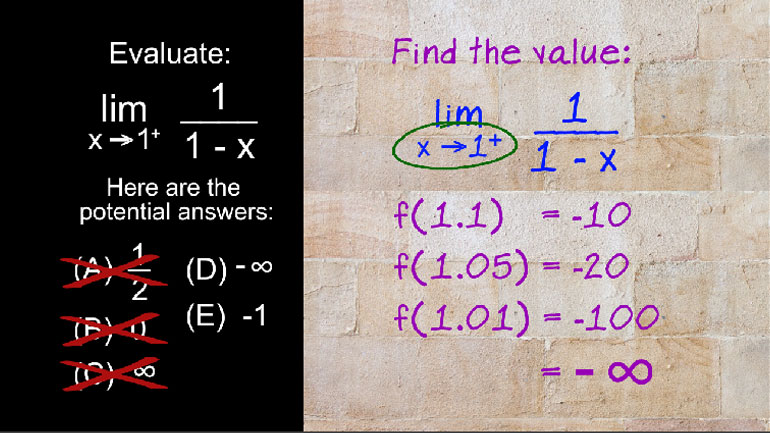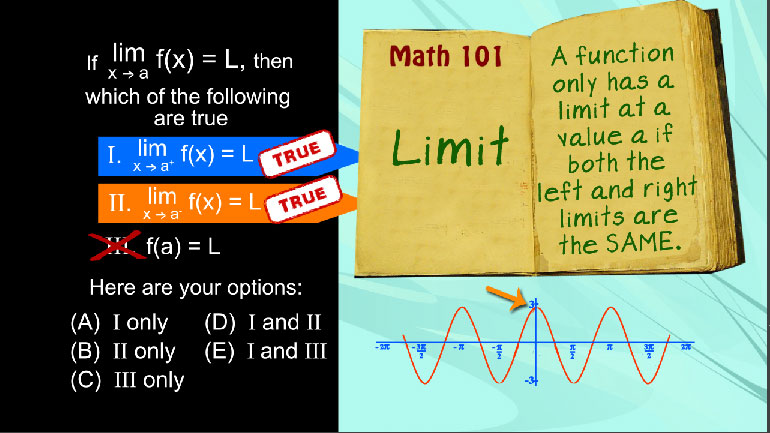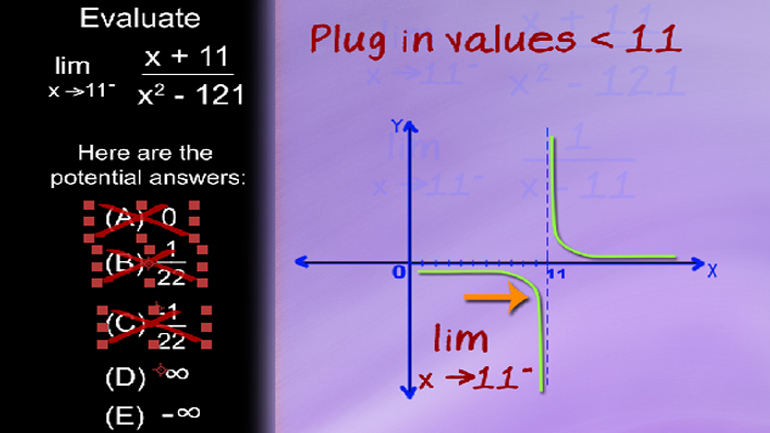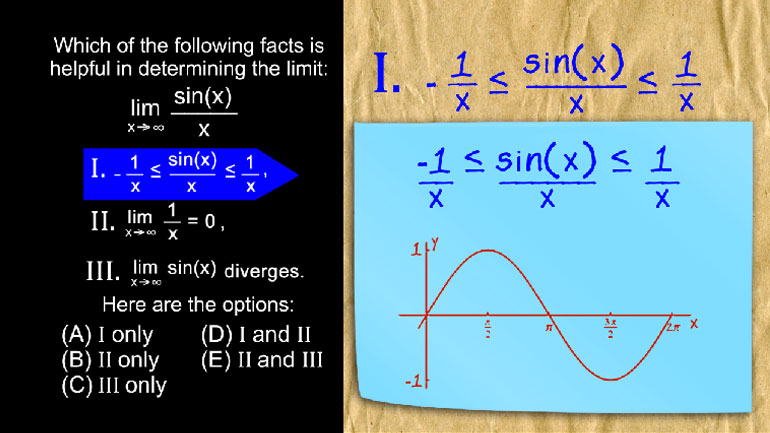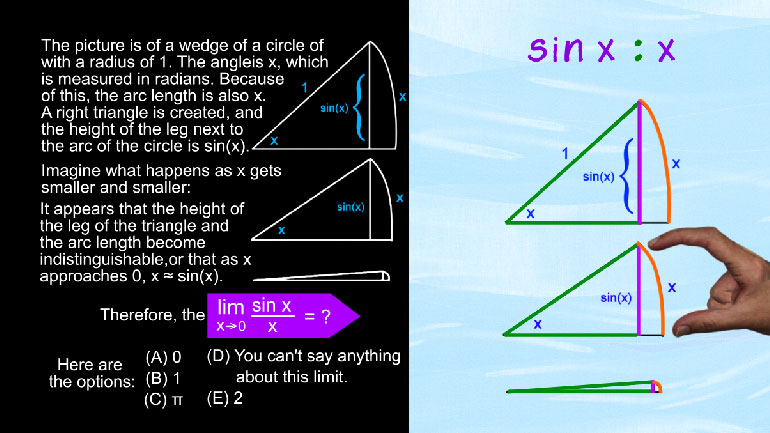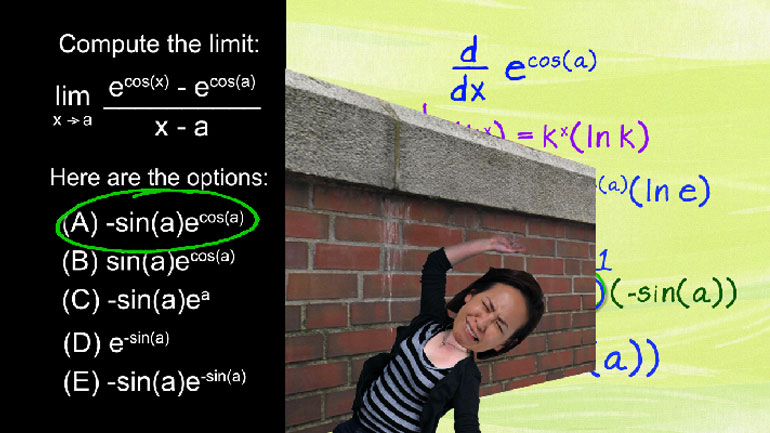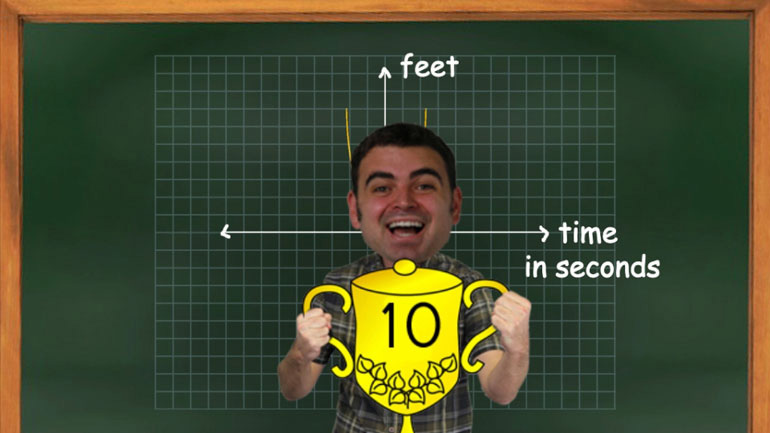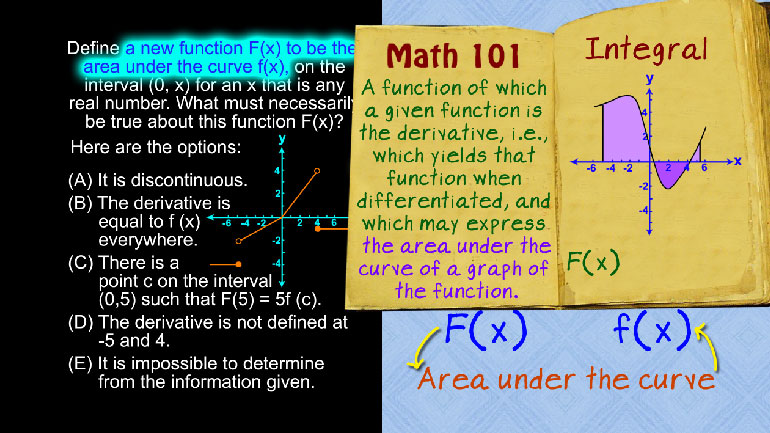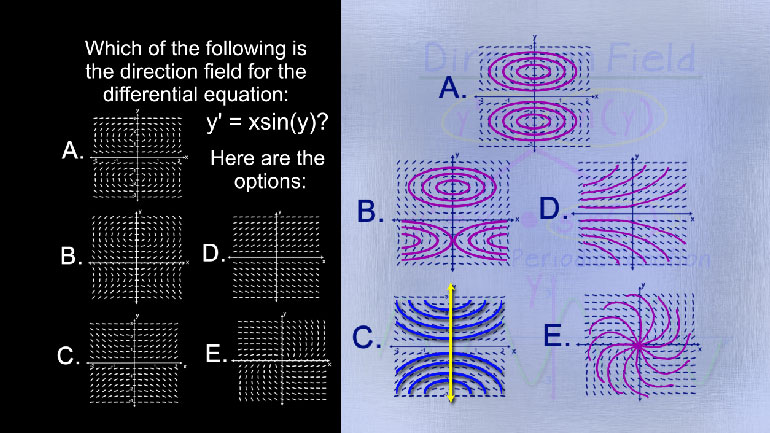ShmoopTube
Where Monty Python meets your 10th grade teacher.
Search Thousands of Shmoop Videos
Playlist AP® Calculus 14 videos
AP Calculus: Problem Explanation Limits Drill 1, Problem 1. Which of the following are true about the pictured function?
AP Calculus 1.4 Limits. Given the limit, which of the following are true?
Derivatives as Slope of a Curve 5240 Views
Share It!
Description:
What do snickerdoodles and velocity have in common? Derivatives! No, that wasn't a bad attempt at a joke. Get on our level by watching this speedy video.
Transcript
- 00:04
Derivatives as the Slope of a Curve, a la Shmoop,
- 00:07
Mr. Snickerdoodle always wanted to be a racecar driver, but unfortunately, there were never
- 00:10
any racecar dealerships established around his area. So he decided to buy the next best
- 00:12
thing, a brand new leather furnished golf cart with extra-large cupholders.
- 00:18
To fulfill his ambitions of being a race-car driver, he decides to see how fast he can
Full Transcript
- 00:22
go in his new golf cart. He starts at his house and decides to have
- 00:27
the finish line at his friendÕs house. His friend, Mr. Macadamia Nut, Macnut for short,
- 00:32
decides to help him, by drawing a graph of his distance traveled in feet versus time
- 00:36
elapsed in seconds. Because Mr. SnickerdoodleÕs favorite number
- 00:40
is 10, he wants to figure out how fast the car can go at time equals 10 seconds.
- 00:46
How fast is Mr. Snickerdoodle going at 10 seconds?
- 00:47
One way to express how fast he is going is by using velocity, which equals the change
- 00:52
in position over change in time.
- 00:55
We know the function for position of the golf cart can be written as f of x equals x-squared.
- 01:02
If we can find the rate of change, or slope, of the position graph at 10 seconds, we will
- 01:07
find how fast he is going.
- 01:10
Typically, we can find the slope of a line by taking two points on the line, and taking
- 01:16
the quantity y2 minus y1 over x2 minus x1. However, our position graph is a curve, not
- 01:23
a line. This means that the slope of the graph varies at different points in time.
- 01:29
Even though the slope is changing, we can find the slope at a single x-value by finding
- 01:34
the slope of a line tangent to the curve at that point, when t equals 10.
- 01:41
To find the tangent line, we start by finding the line that goes through t equals 10 and
- 01:46
another point on the graph. This is called the secant line. To find the tangent line,
- 01:53
we can slide the other point closer and closer to t equals 10Éand eventually weÕll get
- 01:58
a line that is tangent to the graph at t equals 10.
- 02:02
A mathematical term we can use to describe getting closer and closer to something is
- 02:07
a limit. In other words, we want to find the limit as the second point approaches 10.
- 02:14
As you may recall, slope is y2 minus y1 over x2 minus x1. To find the slope at x equals
- 02:20
ten, we take the limit of the slope of the secant line as the second point approaches
- 02:25
the first. Another way of thinking about this is the
- 02:29
distance between the two points, which we can call the variable h, approaching zero.
- 02:34
Since we want to express everything in terms of variables, we can label the initial point
- 02:38
with the variable x, which we will later substitute 10 for. Our formula for slope now becomes
- 02:45
the limit as h approaches zero of f of x plus h minus f of x over x plus h minus x.
- 02:54
The xÕs on the bottom cancel out, which leaves us with the limit as h approaches zero of
- 02:59
f of x plus h minus f of x all over h.
- 03:04
This formula will show up again and again when you do derivatives, so MEMORIZE IT.
- 03:10
Plugging in Mr. SnickerdoodleÕs equation, we have f of x equals x squared. For the first
- 03:15
part, we plug in x plus h instead of x..to get the limit as h approaches zero of x plus
- 03:23
h squared minus x squared over h. If we FOIL x plus h squared, we get x squared plus 2xh
- 03:32
plus h-squared. We can cancel the x squaredÕs, leaving us with the limit as h approaches
- 03:38
zero of two x h plus h squared all over h. We can factor an h out of the numerator..to
- 03:44
get h times 2x plus h. The hÕs cancel on the top and bottom. WeÕre left with the limit
- 03:50
as h approaches 0 of 2x plus h.
- 03:53
Now we can plug h equals zero in, giving us that the slope equals two x.
- 03:59
What we just found is the rate of change of the position over time, which, if you think
- 04:04
about it, is just velocity. This is also called TAKING THE DERIVATIVE of a function. Which
- 04:10
is presumably why you came to watch this video.
- 04:13
So back to Mr. Snickerdoodle. To find the velocity at ten seconds, we just plug in ten
- 04:18
for x into 2x. to find that Mr. SnickerdoodleÕs speed is 2 times 10, or 20 feet per second.
- 04:25
For those of you not familiar with feet and seconds, heÕs going a blazing 13.6 miles
- 04:31
per hour. His race car driving dreams are finally fulfilled.
Related Videos
Who wants to be a millionaire? In this video, learn about compound interest, interest rates, and the compound interest formula. You'll be buying th...
ACT Math: Pre-Algebra Drill 5, Problem 2. If a and b are prime numbers, how many factors does ab have?
We don't like knocking people down to size, but we do like simplifying radicals. Join us?
If fleeing criminals always fled the scene of the crime at perfect right angles, it would be much easier to determine their whereabouts. Fortunatel...

